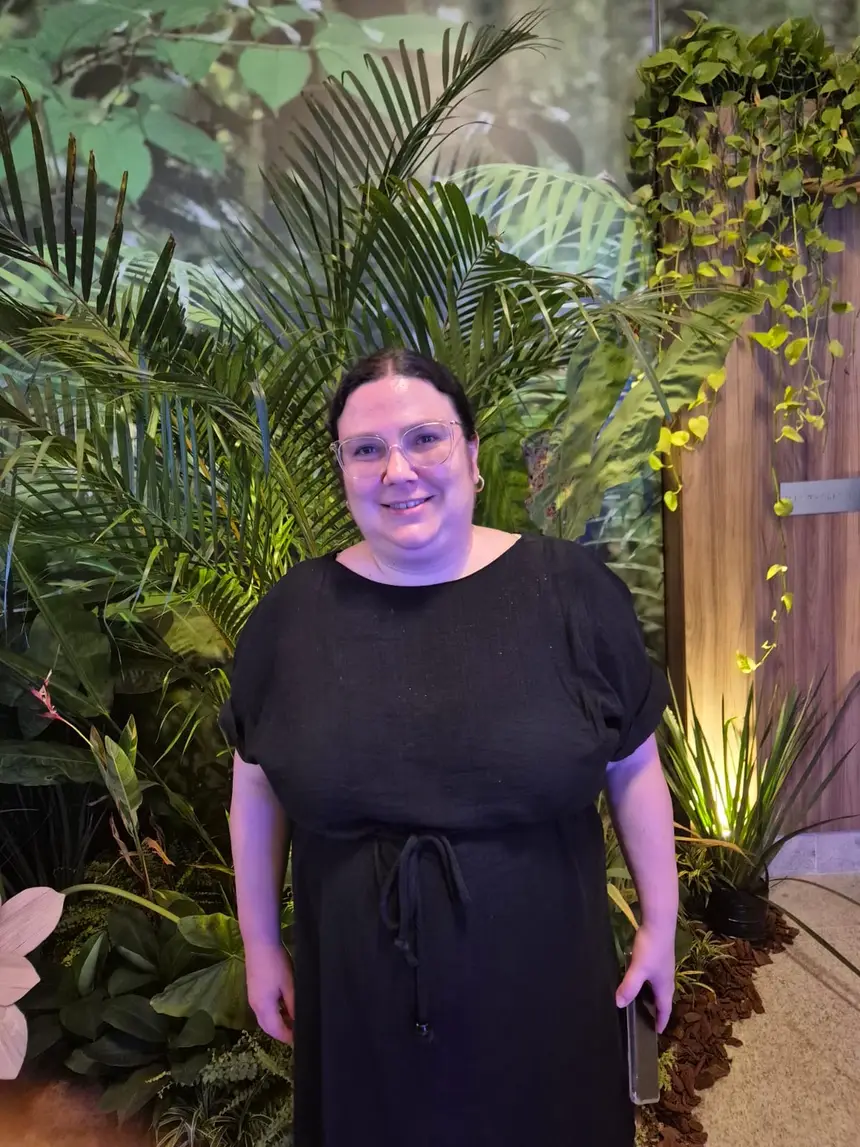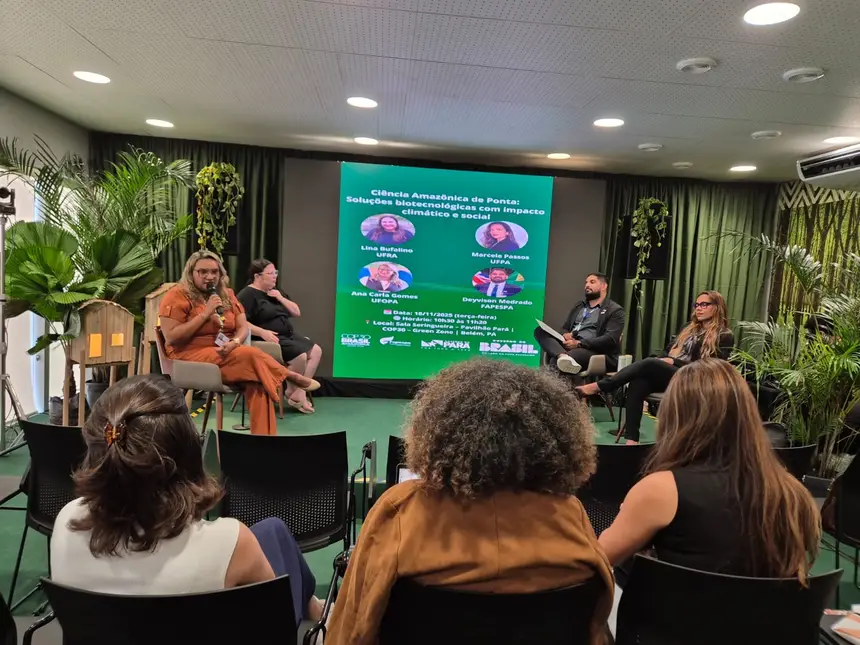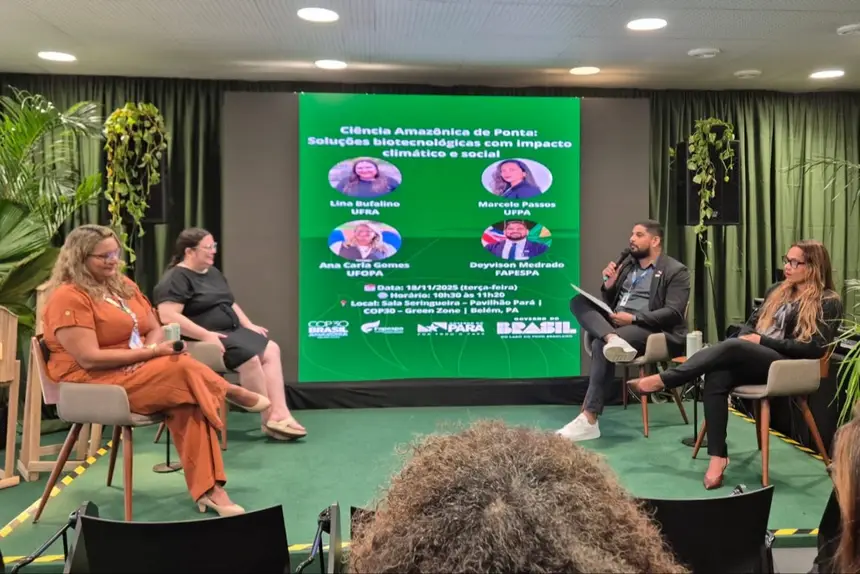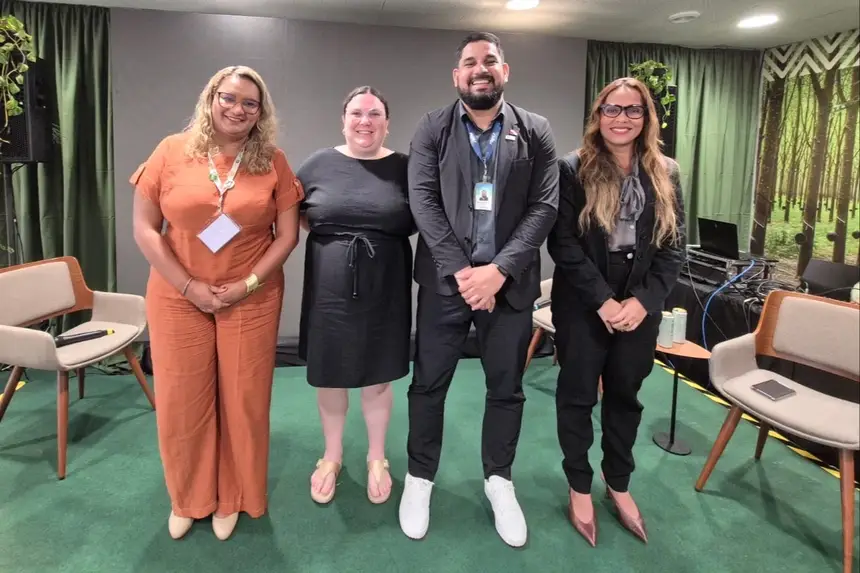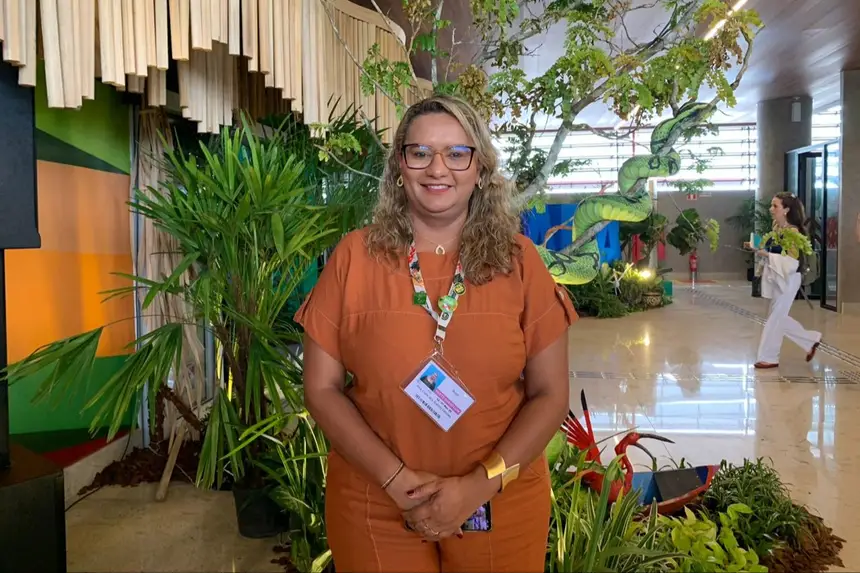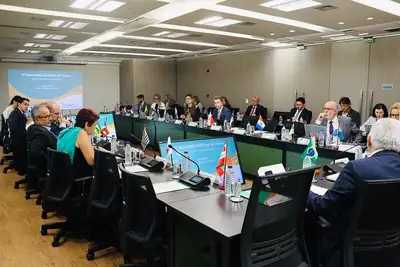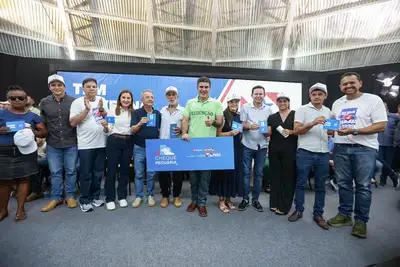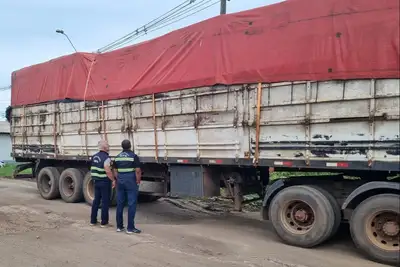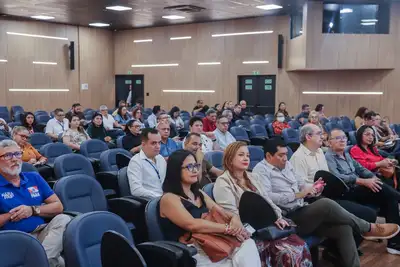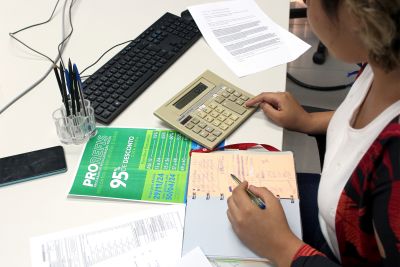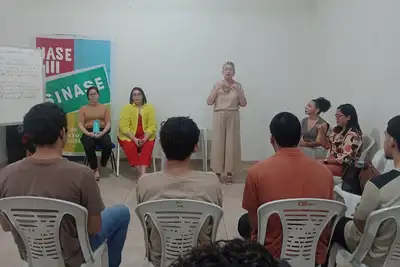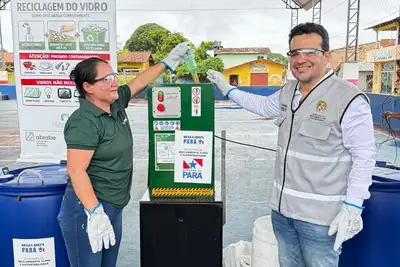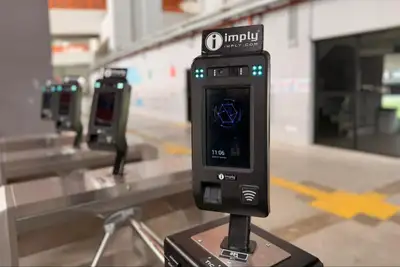Cutting-Edge Science in the Amazon: Fapespa Explores Biotechnological Solutions with Climate and Social Impact in Panel at the Pará Pavilion
Integrating the Pará Pavilion, in the Green Zone of the 30th United Nations Conference on Climate Change (COP 30), the Amazon Foundation for Support of Studies and Research of Pará (Fapespa) held, this Tuesday (18), a panel focused on the discussion of "Cutting-Edge Amazonian Science." The activity proposed an immersion into the biotechnological solutions developed by projects funded by the Foundation, focusing on cutting-edge bioeconomy and the direct impact on the climate and social challenges of the region.
Moderated by Fapespa's scientific director, Dayvison Medrado, the panel was composed of researchers practicing cutting-edge science in Pará, through local Science and Technology Institutes (ICTs). According to Medrado, the program aimed to showcase how these research projects are contributing to the development of biotechnology and frontier science in the Amazon region, specifically in Pará.
“We seek to change this paradigm of technology absorption to the construction of technologies based on the knowledge of the forest, local knowledge, and the biodiversity located in Pará. So this panel brought this perspective of talking a little about what has already been done and opening the way to discuss the future of the Bioamazon Valley, the future of bioeconomy, and the future of scientific research in the state,” detailed the director.
The program presented results already achieved in research areas such as bioproducts, bioinputs, applied genetics, plant and microbiological biotechnology, bringing scientific evidence and impact metrics that demonstrate the potential of the Amazon as a hub of green innovation. In addition to the presentation of the projects, the panel also discussed strategies for scientific internationalization, including cooperation with foreign institutions, research networks, and international funding mechanisms.
Female Protagonism in Science — The panel presentation was predominantly composed of female researchers. The professor from the Federal University of Pará (UFPA), Marcele Passos, was one of the scientists present and highlighted female protagonism. “We have a protagonism based on biotechnological solutions that will reduce, or at least mitigate and adapt, products related to what we are discussing here at COP 30 regarding climate change, products that have scaling capacity and that can indeed be used, for example, in bioeconomy projects like the Valley [Bioamazon], which was recently inaugurated by the State government,” she declared.
Coordinator of the laboratory of biomaterials, bioproducts, and biofabrication technologies, located at the Institute of Biological Sciences, Marcele receives support from Fapespa in her project involving bionanovectors, seeking to transform waste and assets from the Amazon into molecules that have high added value and that can be related to the fields of pharmacy, agriculture, and health as a whole.
The professor assessed that the panel demonstrated the capacity and protagonism of the Amazon in generating high added value products. “It shows that we can move from being simple suppliers of raw materials to having installed capacity and generation of these products here.”
With a biotechnological solution also involving nanotechnology, Professor Lina Bufalino, from the Institute of Agricultural Sciences of the Federal Rural University of the Amazon (UFRA), also highlighted the importance of conducting research on the Amazon in the Amazon. “Before this laboratory, I had never felt like the protagonist of my own research here in the Amazon, so I always took a raw material from here and went with some partner to another region of the country, or sometimes even to another country, did the research and came back with the result. Today I can make the research be born here, with the students, the researchers from here, and then you have a unique human resources formation, which is from the Amazon,” she states.
With the support of Fapespa, Lina worked on the use of fibers from açaí waste for the development of eco-papers, sustainable papers, mainly aimed at packaging applications. “Currently, we already have more than ten types of prototypes using açaí waste and, in addition, we will in the future produce nanopapers, we will reach the nanoscale and be able to improve the properties of the papers through this process,” the professor projects.
For her, the panel was important to publicize these solutions to society and bring the relationship between the research conducted in Pará and COP 30. “In my case, I emphasize that the use of açaí waste is important because, as it happens today, it is in the environment being naturally degraded, releasing CO2 into the atmosphere without any added value.
Professor Ana Carla Gomes, from the Federal University of Western Pará (UFOPA), highlighted her project Air Caregivers in the panel, which developed sustainability by directly engaging with society, through a pilot innovation network for monitoring air quality in the Western Pará region. “This project integrated teaching and extension, fulfilling the university tripod and was fostered by Fapespa. We had the Foundation's support for 18 months and from this incentive, we managed to have more than 40 scholarship holders from both high school, who were from our partners, the Technical School of Santarém, EETEPA-Santarém,” she explained.
Text: Beatriz Rodrigues, intern, under the supervision of journalist Manuela Oliveira – Ascom/Fapespa



